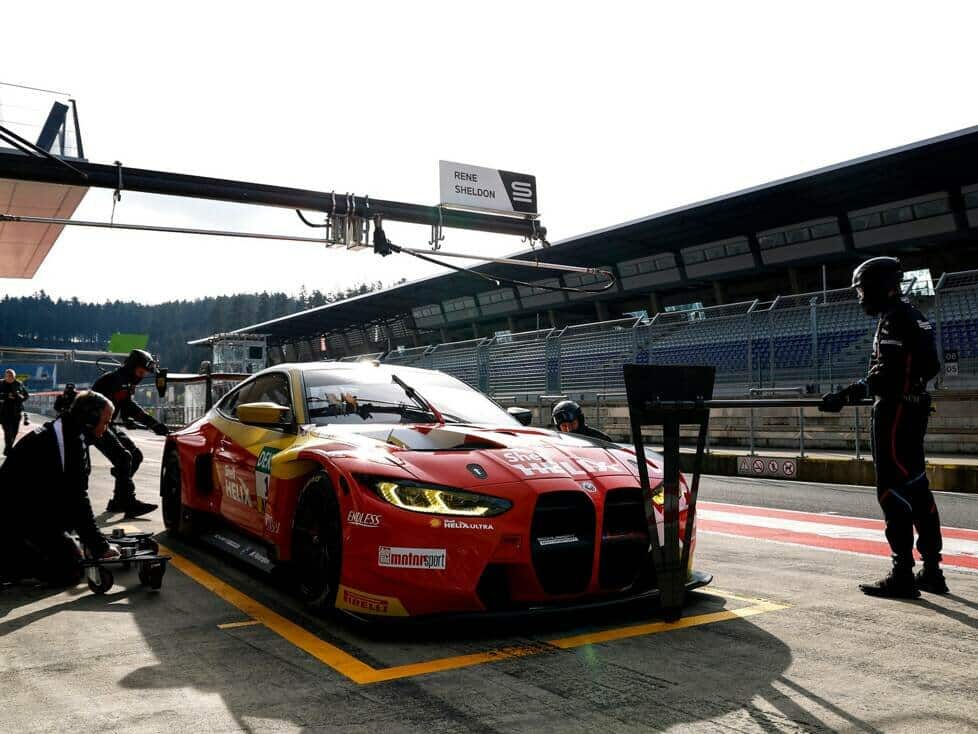The new DTM testing restrictions came into force today: Why a team could even use 15 test days and why the ADAC GT Masters offers a potential loophole
Rarely have DTM regulations been finalized as early as those for the 2024 season, which were approved by the German Motorsport Association (DMSB) at the end of February. The reason? The much-discussed test restriction, which comes into force today, March 1, as a first step and will apply until the season finale in Hockenheim before a more restrictive version is introduced.
“For our participants, restricting test drives is important from an economic point of view, and for the DTM, it is essential for the sustainable development of the series,” explained ADAC Head of Motorsport Thomas Voss, who is hoping for a reduction in costs and “more equality of opportunity”. What has the ADAC agreed with the teams?
Essentially, according to the information provided, each DTM team may register tests on a maximum of five race tracks, but only once per season on the same track. This applies to all circuits worldwide, the Thursday tests no longer exist
Schubert team could even test for 15 days
How many private test days are allowed is regulated by the drivers. This is because the two-page text on testing restrictions states: “A DTM driver may take part in a maximum of five limited DTM test days.”
This means that a team is allocated five test days per driver per season, which can either be carried out together or separately. A team could therefore complete five test days with both drivers, or theoretically ten test days with one driver each, then even twice on the same track. BMW Team Schubert, which has three drivers, could even test for 15 days.
While a limited DTM test is precisely defined – it is a driving activity by a DTM driver in a GT3 car carried out by a DTM team with DTM tires – there is no binding number with regard to the number of tire sets
Curious wording about tire sets
“DTM teams and DTM drivers shall not use more than 3 new sets of tires during a limited DTM test,” the regulations state. A curious formulation that gives the teams a completely free hand, but the DMSB does not have the financial means to monitor this.
As a result, the DMSB now wants to collect empirical data on how much rubber the teams burn during the tests in order to intervene in the future if necessary
Why the possible penalty for infringement is missing
In addition, there are no penalties in the regulations that could serve as a deterrent in the event of an infringement. This has to do with the fact that the penalty catalog is still being worked on. In this regard, there is talk of a wide range of possible sanctions – from a fine for not registering a test or carrying it out without authorization to severe sporting penalties.
There is currently discussion that a driver could, for example, face a demotion at the next event in the event of an infringement.
The ADAC is trying to cover possible gray areas in the regulations with numerous definitions, as it is not so easy to prohibit tests with the GT3 cars used worldwide.
The DTM teams must register any driving activities – even in other series – at least 20 working days in advance in a new online system and wait for approval. This also applies to DTM drivers, but only for the circuits used in the DTM.
DTM teams that compete in the ADAC GT Masters have an advantage?
The test restriction also applies if a DTM team wants to test with a driver who is not active in the DTM and has platinum status with the FIA. Events or official test days of other series are excluded from the test restrictions, as well as test events where the DTM tires from Pirelli are not used.
In addition, DTM teams that also compete in the ADAC GT Masters have a potential advantage, as the maximum number of drivers allowed to compete in the ADAC’s second GT3 series is Gold status – and there are no testing restrictions there.
A situation that could be exploited, because a young talent with Gold or Silver status could certainly provide useful feedback on the car’s handling for the DTM, especially as the races take place on the same weekends.
For this reason, the ADAC has set up the DTM Sporting Board, which consists of DTM series manager Michael Rebhan, technical coordinator Robert Maas and Michael Kramp from the DMSB. The board’s task is to review the teams’ behavior based on the data collected, identify trends and tighten up the regulations if necessary.





